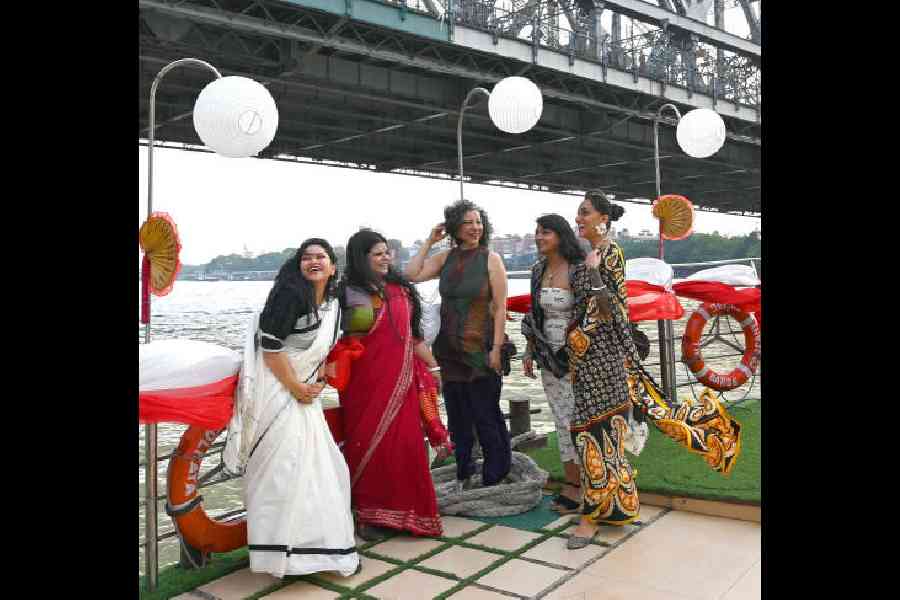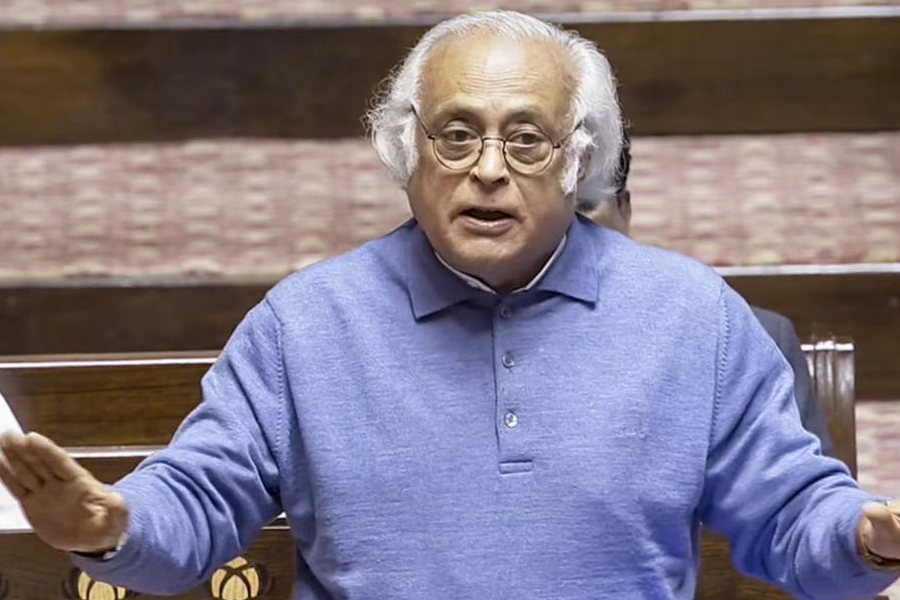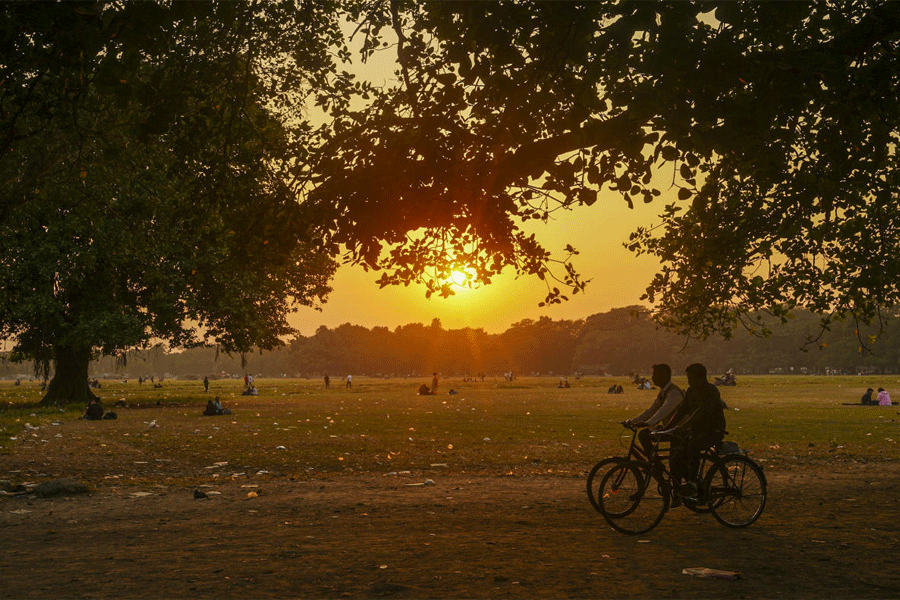When Rishika Das Roy, marketing director, The Barge Company, called us with the idea of celebrating the real-life ‘dashabhujas’, ahead of Durga Puja, an annual carnival that celebrates the homecoming of the 10-armed Goddess, Durga, the idea was to pick names who were their own women with their own journeys and armed with minds that think with clarity and candour.
On a sunny morning, Karuna Ezara Parikh, a poet; Shuli Ghosh, co-founder and creative head at Sienna; Parama Ghosh, founder of the eponymous clothing label; and Eina Ahluwalia, founder of conceptual jewellery brand Eina, boarded Desire, which had decked up in the hues of the festive season, for a special photoshoot. Their distinct personalities added layers to the frame. Much like the age-old Howrah Bridge that formed the backdrop, synonymous with Calcutta and its spirit.
Excerpts from our conversation with the awesome foursome, post-shoot.
The shoot was all about celebrating the multitasking mavericks that women are. But do you think that is an overrated quality and puts unnecessary pressure on women?
Karuna: I don’t know if it’s nature or nurture, but the women around me seem to always be doing 50 things with grace, while the men I know collapse when a single extra task is added to their day. I mean this with some humour, of course, but also as a witnessed truth. Personally, I don’t feel pressurised by anyone to be a multitasker; I simply cannot imagine any other way in which to get everything I want done within certain time frames. So, I work with eight arms, and even 10 when I need to. It’s nitro mode! While it might be something to admire in women, I’m not sure it’s something to glorify. My two rules for the multitasking woman are: it should always be a choice, and stop before you burn out. It should feel more exhilarating than exhausting.
Shuli: It can put unnecessary pressure on women; however, out of necessity and obligation, women have been multitasking for centuries now, and it has almost become second nature. Some of the strong female figures in my life are raising kids, making sure everyone in the home is well fed, and also simultaneously handling work like a pro. It shouldn’t have to be this way, though.
Eina: Yes, I absolutely do. Women are expected to have an A-game everywhere and with everything, whether it’s home, work, or the many roles they play in the endless list as a daughter, sister, wife, mother and so on. No wonder they’re always overworked, overwhelmed and exhausted, and yet they manage mostly with grace and a smile.
Parama: Of course, I think the concept of multitasking women is extremely overrated. I feel our society hasn’t been trained in a certain way, and that puts a lot of pressure on a modern-day woman who, for example, is handling household chores, raising a child, running a business or is a working professional. I am comparatively a new mother; my first child is Parama, my entrepreneurial venture, which is 10 years old. So, I am handling an almost-teen and a toddler together. Since I have always considered my business a human entity, I have felt that it requires an equal amount of attention that a human child needs. No matter how much we say that it takes a village to raise a child, it’s really the mother who is dumped with the guilt that you haven’t given enough time to the child. Even though you might have struggled at work on a given day, at the end of the day, just not to feel guilty, you’d do certain things with the child, like put him to sleep or feed him dinner. If the child takes ill, the first one to be blamed is the mother for not being attentive enough. No one puts that pressure on a man.
We have empowered our women to go to work, but not equipped the other members of the family with the housework so that she can build a career, uninterrupted. Honestly, I don’t want to be such a multitasker.
How good are you at multitasking, though?
Karuna: Very good. I’m also someone who has never been satisfied doing just one thing. When I was a young journalist, I worked side by side at an NGO. While hosting television shows, I wrote a book. When I turned entrepreneur, I also published my poetry and explored an online career. In some ways, I am more suited to doing several things at once, and it’s when my brain is most fired up.
Shuli: I find myself inevitably multitasking almost every day, but I am not great at balancing it all, to be honest, and end up taking up too many tasks all at once. I’ve learned, the hard way, to delegate.
Eina: I’m moderately good at it, but not really great, and that is a conscious decision. We all have to multitask at level 100 sometimes, and I can manage it, but it frazzles my nerves, and I don’t enjoy it. It is also counterproductive to creative work, which needs flow. So, I multitask only when I must, and not when I can avoid it. I find it’s healthier for my body and emotions to focus on one thing and do it well.
Parama: At any given point in time, 150 tabs are open on my computer. And, in my mind. Now, if the child’s meal plan has idli or chilla, you can imagine my plight! I can’t cook to save my life. And balancing this with the peak festive season orders! I don’t know whether I am good at it, but I am forced to multitask.
Do you feel like giving up sometime?
Karuna: Yes, and then I do. I make sure there are periods of rest. Whether it’s something as small (but significant) as a slow breakfast date with girlfriends, or something as deep and important as exploring a new country with my partner, I take the time out. Getting enough sleep, eating right, playtime with my puppies, reading, and meditation are all anchors I know I couldn’t multitask without. I believe the only way it works to be multi-armed is to rest them, too.
Shuli: I definitely feel severely anxious and pressured at times, trying to balance it all, and secretly wish to maybe escape to a serene hilltop and drink tea and read books all day, but I have rarely wanted to give up!
Eina: When it gets too much, then I have to take some time out and rest and recharge. There’s no other way.
Parama: No, I don’t feel like giving up. I have realised that I am restless and someone who loves chaos over calm. I like this chaos. A couple of days of rest is good for me. I find peace in chaos, precisely why Benaras and Calcutta are two of my favourite cities. In that chaos, I find my calm.
What would you say is your superpower?
Karuna: Seeing silver linings. A quick shift in perspective is always worth investigating. Change the narrative to change your mood. I’m not one for toxic positivity, but the opposite isn’t helpful either.
Shuli: I appear to be calm in chaotic and stressful situations, even though I may be panicking inside.
Eina: My superpower would be to NOT multitask and create in a flow; however, life demands more mad multitasking to back up creative work as well.
Parama: I know what I want. I think most of us don’t know what we really want. And, I also know what I don’t want. And, my kindness.
What do you think today’s women want to be credited with?
Karuna: I don’t think it’s homogeneous, and for me, that’s what truly represents today’s woman. One woman might think it important to be recognised as a great mother, while another might want her efforts at the company to be noticed. One might want her body to be more appreciated, while another might wish to be seen for the energy she thinks she brings to her family. It’s so personal, and I think the “what women want” question can never be answered, when each of us is a Goddess with 10 arms, all reaching for different things.
Shuli: At least be credited for everything women do for their partners, families and the community at large. Equality first, then special mentions would be a bonus.
Eina: Respect for whoever and however they choose to be, not only when they play their roles well or are performers. They deserve respect for who they are, irrespective of what they contribute to other people’s lives.
Parama: Career is a very important part of what today’s women want to be credited with. Financial independence, their own house and car, and I also think that it gives women a lot of confidence if they can handle their investments.
We want to be credited for how we balance work and home, but in reality, there is no balance. It is a seesaw. We want to be credited with how well we can balance that seesaw.











